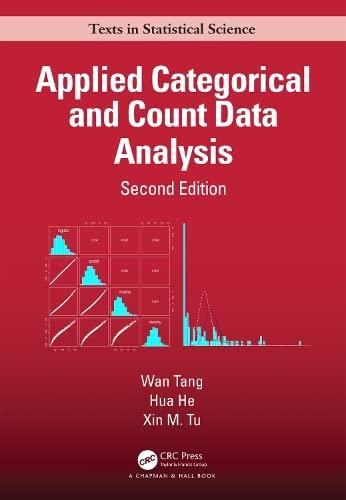For an independent sample of (Y_{i}) and (X_{i}(1 leq i leq n)), suppose that [begin{equation*}Y_{i}=mathbf{X}_{i}^{top} beta+epsilon_{i}, quad
Question:
For an independent sample of \(Y_{i}\) and \(X_{i}(1 \leq i \leq n)\), suppose that
\[\begin{equation*}Y_{i}=\mathbf{X}_{i}^{\top} \beta+\epsilon_{i}, \quad \epsilon_{i} \sim\left(0, \sigma_{i}^{2}\right), \quad 1 \leq i \leq n \tag{1.28}\end{equation*}\]
where \(\sigma_{i}^{2}=\operatorname{Var}\left(\epsilon_{i}\right)\) is known. Show that the weighted EE
\[\begin{equation*}\sum_{i=1}^{n} \frac{1}{\sigma_{i}^{2}} \mathbf{X}_{i}\left(Y_{i}-\mathbf{X}_{i}^{\top} \boldsymbol{\beta}\right)=\mathbf{0} \tag{1.29}\end{equation*}\]
will produce the best linear unbiased estimate (BLUE) for \(\beta\).
Fantastic news! We've Found the answer you've been seeking!
Step by Step Answer:
Related Book For 

Applied Categorical And Count Data Analysis
ISBN: 9780367568276
2nd Edition
Authors: Wan Tang, Hua He, Xin M. Tu
Question Posted:





